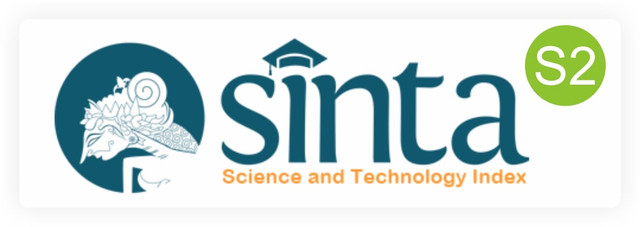Uji sitotoksisitas dan antiproliferatif ekstrak etanol daun leunca (Solanum Nigrum,L) terhadap sel raji
DOI:
https://doi.org/10.12928/pharmaciana.v6i2.3506Keywords:
leunca leaf, ethanol extract, cytotoxicity assay, antiproliferative assayAbstract
Leunca (Solanum nigrum,L.) is one of the medicinal plant which used society for traditional medication as antipyretic, hypotensive and anticancer. The aim of this research was to know an anticancer activity of ethanol extract of leunca leaves, emphasized on an ability to inhibit the growth Raji cell. Ethanol extract took from leunca leaf powder that epitomized using ethanol solvent by Soxhlet instrument. Citotoxicity test was done by incubating Raji cell at a density of 2x104 with treatment using ethanol extract from leunca (Solanum nigrum L.) leaf in several concentration 500; 250; 125; 62,5; 31,25; 15,62; 7,81 and 3,90 µg/ml. A test was done by MTT method and the percent of cell mortality was calculated. The LC50 values were calculated using probit analysis. The research continued with antiproliferation test on treatment sample concentration 50; 25 µg/ml with cell control for 24, 48, and 72 hours.The result of research indicate that ethanol extract of leunca leaves had cytotoxic effect towards Raji cell with LC50 values 59,22 µg/ml. The result of antiproliferation test showed that there were the growth of inhibitation on treatment sample with doubling time values 69,56 hour at concentration 50 µg/ml; 60,00 hour at concentration 25 µg/ml, and doubling time cell control is 44,98 hour.
Downloads
Published
Issue
Section
License
Authors who publish with Pharmaciana agree to the following terms:
- Authors retain copyright and grant the journal the right of first publication with the work simultaneously licensed under a Creative Commons Attribution License (CC BY-SA 4.0) that allows others to share the work with an acknowledgment of the work's authorship and initial publication in this journal.
- Authors are able to enter into separate, additional contractual arrangements for the non-exclusive distribution of the journal's published version of the work (e.g., post it to an institutional repository or publish it in a book), with an acknowledgment of its initial publication in this journal.
- Authors are permitted and encouraged to post their work online (e.g., in institutional repositories or on their website) prior to and during the submission process, as it can lead to productive exchanges, as well as earlier and greater citation of published work.


1.png)











